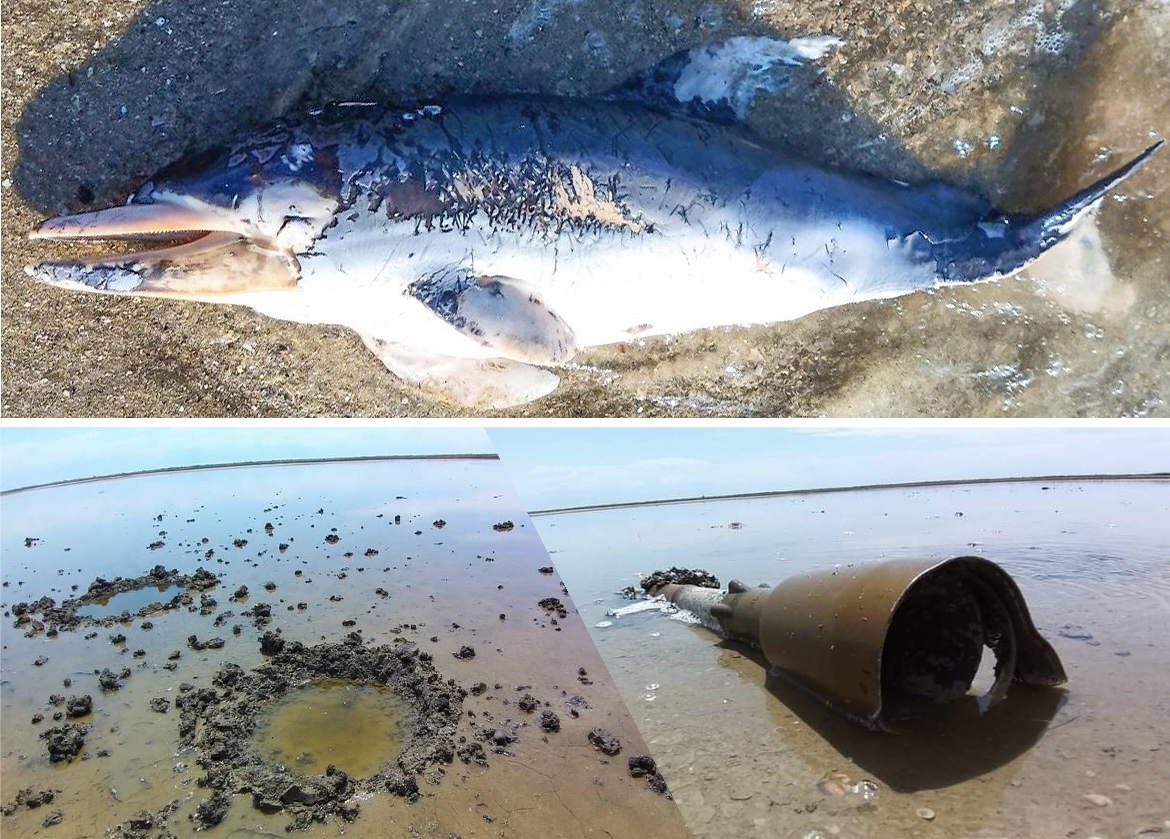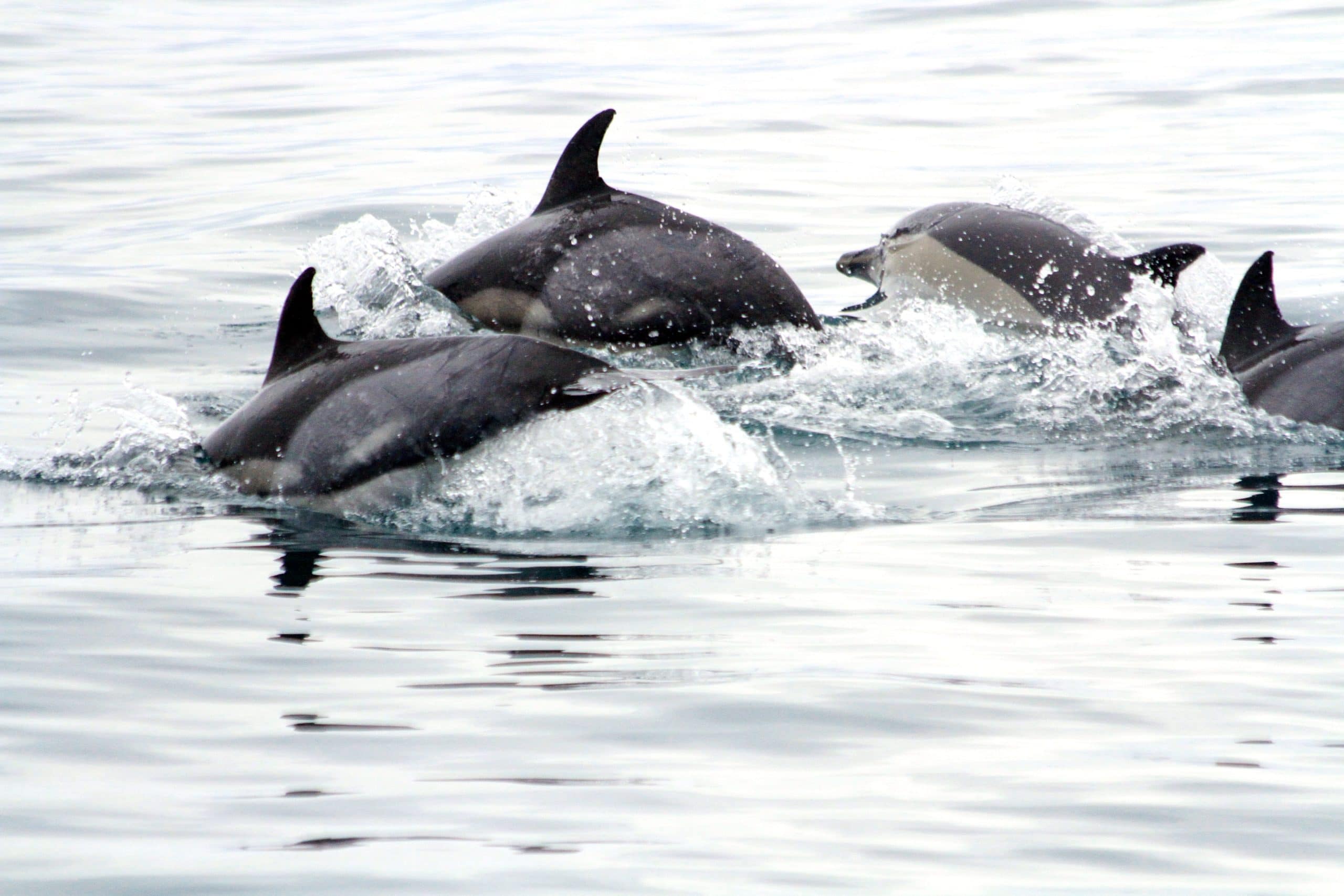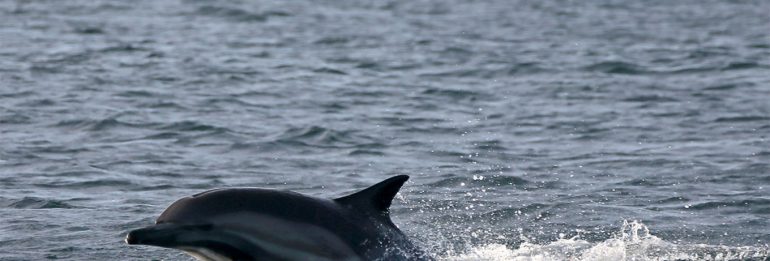In March 2024, almost 140 Black Sea dolphins were found dead on the coast of the Krasnodar region of Russia, according to a statement by relevant experts. Presumably, the cause of their death could be the actions of the Russian fleet, in particular the use of sonars.
A sharp increase in the death of dolphins due to sonars in the Black Sea
Doctor of Biological Sciences, who works in the Tuzlovsky Estuaries National Natural Park in the Odessa region, Ivan Rusev, recalled recent reports of dead dolphins, especially in the bays of Sevastopol. Among the mammals discovered were those that showed symptoms consistent with sonar damage.
“Now we have terrible information about the large-scale death of dolphins - another 130 (!) in March 2024 alone. The bodies of these animals were found on various shores of the Krasnodar Territory - in Sochi, Novorossiysk and other places,” the scientist emphasized.
He published a screenshot, presumably of correspondence with a source, who reported that by the end of March the number of cetaceans washing ashore in the Krasnodar Territory, especially in the village of Sirius, had increased sharply.
“Over the past week, our hotline has been overwhelmed with calls. We have recorded 101 cases of dolphin deaths. On March 31, 36 deaths were reported. The total number of dolphin deaths over the past month was 137. This is a very serious situation,” the message says.

According to Rusev, there is also evidence of cases where the bodies of dead dolphins were washed up on the shores of Bulgaria.
“This dire situation with dolphins in March alone confirms that the use of sonar on submarines and surface ships in the Black Sea, especially in the Crimea, Novorossiysk and Sochi areas, is the main reason for the ongoing loss of rare Black Sea cetaceans,” the scientist said.
Rusev notes that the Russian fleet in the area is using sonar devices that are leading to the death of marine mammals. He clarifies that the real number of dead dolphins in 2024 has already reached several thousand animals.
Smart dolphins: physiology, behavior and abilities
Dolphins are amazing and intelligent marine animals with a wide range of physiological and behavioral characteristics. Their intelligence and ability to learn have amazed scientists and observers for many years.
One of the most noticeable characteristics of dolphins is their social organization. They live in close groups called flocks, where cooperation and mutual aid play an important role in their daily lives. Dolphins communicate with each other using a variety of sounds and gestures, which allows them to effectively coordinate actions when hunting and protecting themselves from predators.

Particularly impressive is their ability to learn and adapt. Dolphins easily learn new commands and learn to perform complex tricks in dolphinariums. They also demonstrate skill in using tools, such as wrapping themselves in seaweed for protection or using rocks to hunt prey.
Research shows that dolphins have a high level of intelligence and are capable of abstract thinking. They can solve complex problems, remember patterns, and even show emotions such as joy, sadness, and curiosity.
In addition, dolphins are known for their ability to help people in extreme situations. There are many stories of dolphins rescuing drowning people, guiding them to shore, or protecting them from sharks.
Overall, dolphins are one of the most amazing and intelligent animals on the planet. Their abilities and behavior continue to amaze and inspire people to study and protect this wonderful species.

